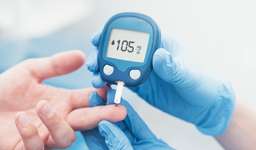
Diabetes Online Training
Cost: £6.00
Welcome to our Diabetes Online Training. Upon completion, you will receive a certificate of completion. The course duration is approximately 1 hour and will earn you 1 CPD point. You have 6 months from the date of purchase to finish this training.This module covers various topics related to Diabetes Online Training module:
1. Introduction to Diabetes:
• Definition and types of diabetes (Type 1, Type 2, gestational diabetes)
• Prevalence and impact of diabetes in the UK
• Risk factors and signs/symptoms of diabetes
2. Pathophysiology of Diabetes:
• Production and function in the body
• Resistance and impaired glucose metabolism
3. Diabetes Management:
• Importance of blood glucose monitoring and target ranges
• Dietary considerations and meal planning for diabetes
• Physical activity and its role in diabetes management
• Medication options for diabetes
4. Therapy:
• Rapid-acting, short-acting, intermediate-acting, long-acting
• Administration techniques (subcutaneous injection)
• Storage and handling guidelines
• Recognizing and managing hypoglycemia (low blood sugar) and hyperglycemia (high blood sugar)
5. Patient Education and Support:
• Effective communication strategies for educating patients about diabetes therapy
• Addressing patient concerns and misconceptions
• Referral pathways and resources for additional support (e.g., diabetes specialist nurses, support groups)
6. Legal and Ethical Considerations:
• Consent and capacity issues related to diabetes management
• Safeguarding vulnerable individuals with diabetes
7. Emergency Situations:
• Recognizing and responding to diabetic emergencies (e.g., diabetic ketoacidosis, severe hypoglycemia)
8. Documentation and Record-Keeping:
• Importance of accurate and timely documentation of diabetes management interventions
• Use of electronic health records and data entry protocols
9. Continuing Professional Development:
• Resources for staying updated on diabetes management guidelines and best practices.
The learning outcomes are.
1. Understand the different types of diabetes, their prevalence, and the impact on individuals and society.
2. Explain the pathophysiology of diabetes
3. Describe the key principles of diabetes management, including blood glucose monitoring, dietary considerations, physical activity, and medication options.
4. Identify the different types and their administration techniques, including subcutaneous injection, pens and pumps.
5. Demonstrate knowledge of proper storage and handling guidelines.
6. Recognize and respond appropriately to hypoglycemia and hyperglycemia in individuals with diabetes.
7. Communicate effectively with patients, addressing their concerns and providing education and support on diabetes therapy.
8. Understand the legal and ethical considerations related to diabetes management, including data protection, consent, and safeguarding.
9. Recognize and respect cultural differences in diabetes management and tailor education and support accordingly.
10. Identify and respond to emergency situations related to diabetes, such as diabetic ketoacidosis and severe hypoglycemia.
11. Understand the importance of accurate documentation and record-keeping in diabetes management.
12. Identify opportunities for continuing professional development in diabetes care and stay updated on guidelines and best practices.
We hope you find this module informative and beneficial for your professional development in Diabetes Online Training module.
If you need more information about this course, please contact Train Healthcare directly at 0208 3266 704 or email contact@trainhealthcare.com.
Please note that refunds are not available for online training purchases.
Nursing and Midwife Council's (CPD Points).
Requirements:
It is necessary to complete 35 hours (35 Nursing CPD Points) of relevant CPD within the three-year period since your last registration renewal or since joining the register.
Of these 35 hours (35 Nursing CPD Points), a minimum of 20 hours (20 Nursing CPD Points), should be dedicated to participatory learning, which involves engaging in activities that facilitate interaction with other professionals.

